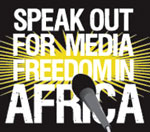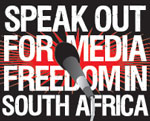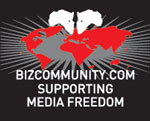
Top stories






More news

ESG & Sustainability
#AGES2026: How to back Africa's next-gen green and blue entrepreneurs















Logistics & Transport
#Budget2026: Road freight logistics and what it means for consumers



"If you look closely, you will see that politicians across the continent don't want to be criticised," Maina, a specialist in criminal justice, human rights, advocacy and governance, said.
In many African countries, where the head of the state, ministers and members of the ruling party have become the law themselves, and courts exist only to try cases of petty crimes and murder, any journalist who takes on the government will be promptly arrested, tried in a 'kangaroo court' for high treason and executed or jailed for life.
Prosecuted for insulting authorities
In other countries, however, where there is some sort of rule of law and social justice, criticism of the government usually end up in courts, with journalists being prosecuted for insulting high-profile authorities.
Maina described these laws as archaic and oppressive, saying Africa should repeal them. "More than 40 African countries still have these colonial laws, including official secret laws. Why? If you are going to keep secrets, you should do it in a progressive manner," he said.
Maina fired a salvo at South Africa's ruling party, the ANC, for proposing the creation of a media appeals tribunal and resuscitating colonial laws.
Critics believe the ANC, which brags to be the sole contributor of the restoration of freedom of expression and press liberties enjoyed today by all citizens, has turned from hero to villain by re-enacting some of apartheid's legislation, including the National Key Points Act, the Film and Publication Amendment Act, and lately the much-hated Protection of Information Bill (aka Secrecy Bill).
"Why is the ANC still keeping these apartheid laws?" Maina wondered. "South Africa is not just an ordinary country; it is a big player in Africa whose actions have a massive influence on other ruling parties in Africa."
Maina believes there is no privacy for those who have sought fame and political glory. "The moment you are elevated into public office, you are no longer private. Believe me, the media will never bring cameras into your bedroom - that is unfair. But if you have too many bedrooms, the media will focus on you," he said, amid laughter and applause.
Furthermore, Maina lashed out at the SA government for bailing out the cash-strapped public broadcaster, SABC, at the tune of R1.473 billion, while it gave nothing to other sections of public media.
"How much did it give to community media?"
"I am glad the government gave R1.5 billion to the SABC, but how much did it give to community media? You should know how to strike a balance between all the public media while you continue to be promoting what is seen as the elitist media."
When the SA government came into power, one of its priorities was to diversify the media by developing community media to ensure that every citizen had access to the media of his choice. But, 17 years down the line, that dream is still an empty drum due to lack of adequate funding as the agency tasked to fulfil that dream, the MDDA, still suffers from under-funding and inadequate capacity-building.
Lastly, Maina slammed www.thoughtleader.co.za - a brand extension of the Mail & Guardian Online containing blogs, opinion and analysis - for inciting hatred and xenophobic violence by urging South Africans to attack Nigerians and other African refugees roaming the country's streets.
Article 19 (www.article19.org) is a global organisation campaigning for freedom of expression.

Last updated at 11.43 on 16 March 2011.
